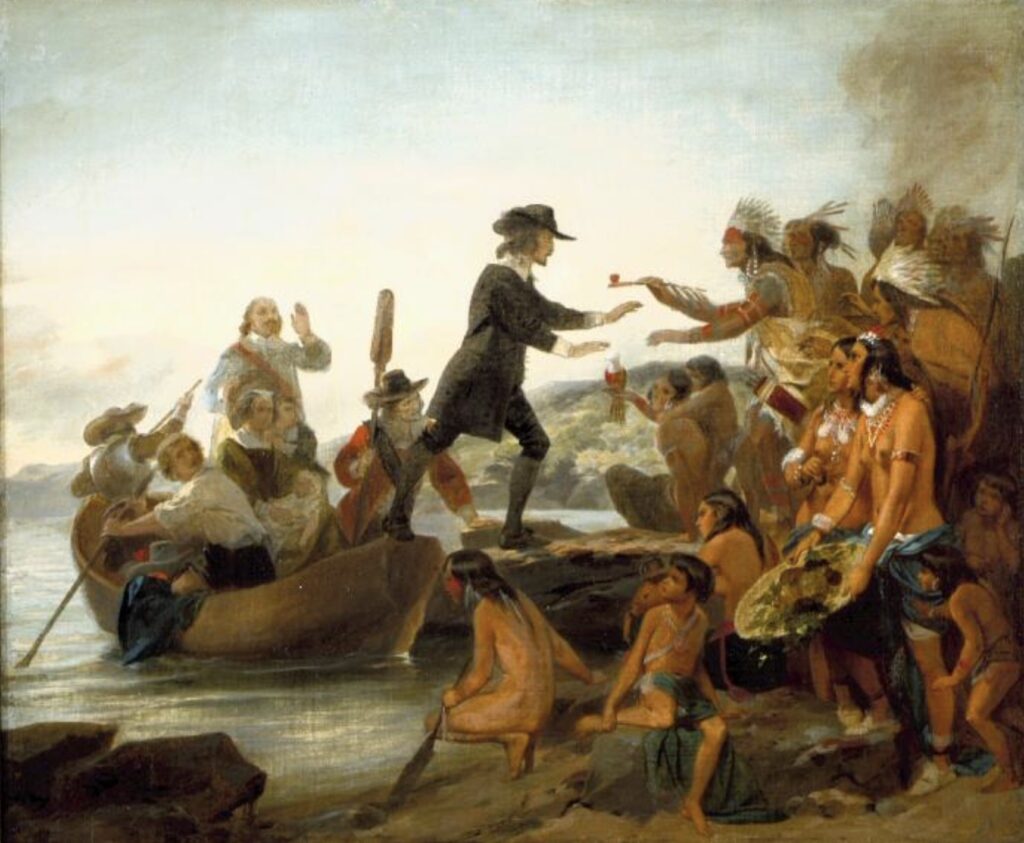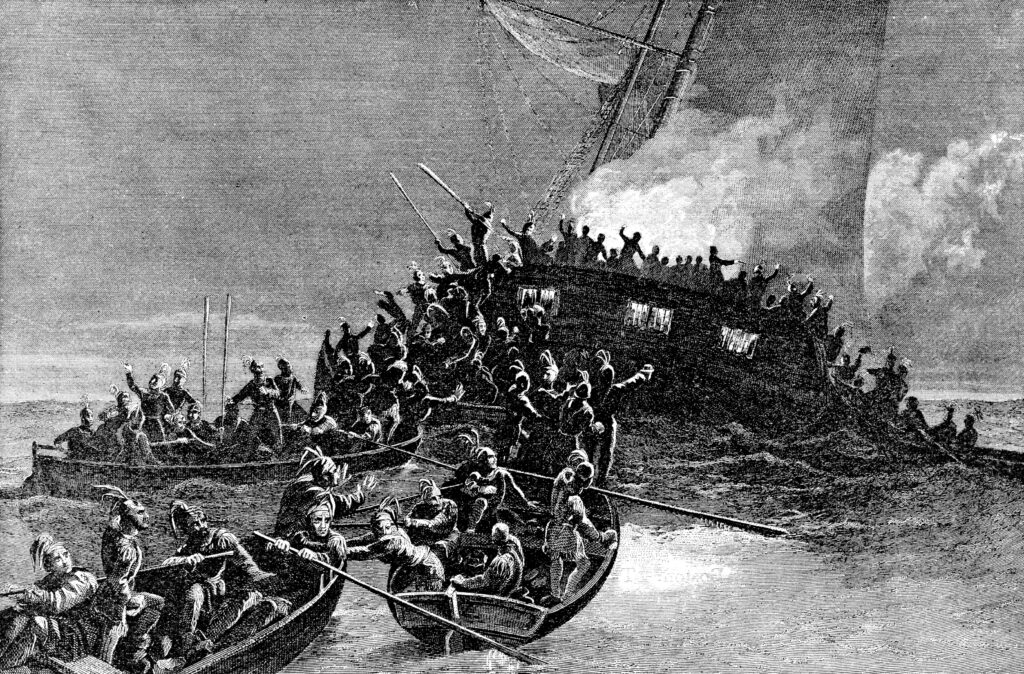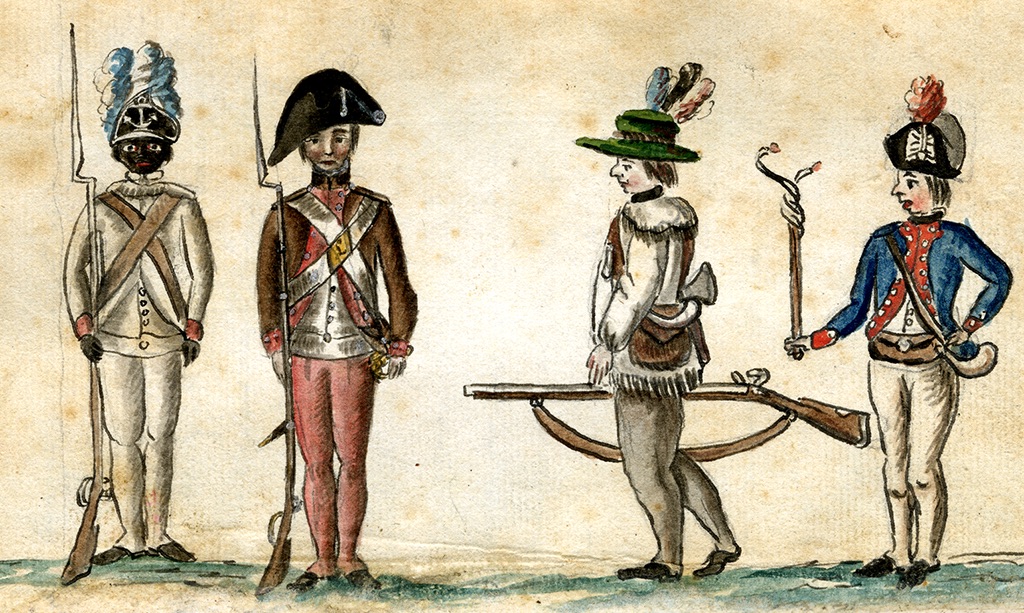Excerpts from Britannica.com and from William McLoughlin’s History of Rhode Island highlight the intensely independent spirit that characterized the state from the beginning:

The Narragansett welcomed Roger Williams, a refugee from Massachusetts Bay Colony, and sold him the land to found Providence in 1636. Williams, a pioneer of religious liberty, believed in the separation of church and state and had been banished from Massachusetts for his beliefs. His settlement was the first place in America where government ruled “only in civil things,” and it attracted other dissenters. Williams helped Anne Hutchinson and her followers, likewise exiled from Massachusetts, to purchase Aquidneck (later Rhode) Island, where they founded Pocasset (Portsmouth) in 1638. These early settlements were unstable and full of intensely religious individualists. In 1639 William Coddington and eight other prominent families left Portsmouth to found Newport on the southern end of Aquidneck Island. Providence experienced two secessions within its first five years, including one which led to the establishment of Shawomet (Warwick) in 1643 by Samuel Gorton. These internal struggles were made worse by a century-long effort by the neighbouring colonies of Plymouth, Massachusetts Bay, and Connecticut to dismember and extend their authority over Rhode Island. These surrounding colonies denounced Rhode Island as “Rogues’ Island” and tried to extinguish it by purchase, invasion, royal commission, fiat, fraud, and intimidation.
From “Rhode Island History” https://www.britannica.com/place/Rhode-Island-state/History

Stubborn, pugnacious, and cocksure, Rhode Island rushed pell-mell toward revolution after 1764. Its people were more united, its leaders more outspoken in favor of independence far sooner than those of any other colony. In open disobedience, it was the spearhead of the Revolution. It was the first colony to resort to armed resistance, to call for a Continental Congress, to renounce allegiance to the king, to create an American naval force. Rhode Islanders never had any doubt as to what the struggle was about: it was about economic survival and political freedom. Being small, existing on the risky margin of its carrying trade in rum and molasses, and bound to suffer first and foremost under the new imperial policies inaugurated after France was eliminated from North America, Rhode Island eagerly sought to arouse the other colonies to vigilance for liberty.
…The outstanding case of violent resistance was the burning of His Majesty’s Ship Gaspee and the shooting of its captain on June 9, 1772, a day that Rhode Islanders still celebrate.
From William G. McLoughlin, Rhode Island: A History (W.W.Norton 1986)

Rhode Island was among the first and most enthusiastic colonies to resist British rule, having been the first to call for a continental congress in 1774 and the first, in 1776, to eliminate an oath of allegiance to the British crown that had been required of colonial officials. Once the Revolution began in earnest, the state suffered considerably. The British occupied Newport for more than three years (1776–79), bombarded Bristol, and foraged for food and firewood extensively in the southern part of the state. Half the people of Newport fled during the occupation, and the British army burned nearly 500 buildings for firewood. In 1778 a combined Franco-American operation (the first of its kind) was mounted in an unsuccessful attempt to dislodge the British. Notable in the Battle of Rhode Island was the distinguished performance of a battalion of African Americans, the first black regiment to fight in America. In October 1779 the British withdrew in order to redeploy their forces in the South, and in July 1780 some 6,000 French troops landed at Newport to join forces with Gen. George Washington. Gen. Nathanael Greene of Rhode Island commanded the American forces that defeated British efforts in Georgia and the Carolinas in 1780–81, forcing Lord Cornwallis to retreat to Yorktown, Va.
From “Rhode Island History” https://www.britannica.com/place/Rhode-Island-state/History
Other exciting bits of Rhode Island history to explore include the article “Smuggling in Colonial Rhode Island and the Gaspee Affair” from the Rhode Island Historical Society (https://www.rihs.org/rogue-island/), and an article about the First Rhode Island Regiment (https://military.wikia.org/wiki/1st_Rhode_Island_Regiment). The Rhode Island State Society, NSDAR, is proud to count descendants of the first Rhode Island Regiment among its members.
For additional information about Rhode island’s participation in the American Revolution and some of the ways that RIDAR has commemorated the Gaspee Affair, see our page about Gaspee Days and parade as well as our chronicle of marking the graves of several Gaspee raiders.